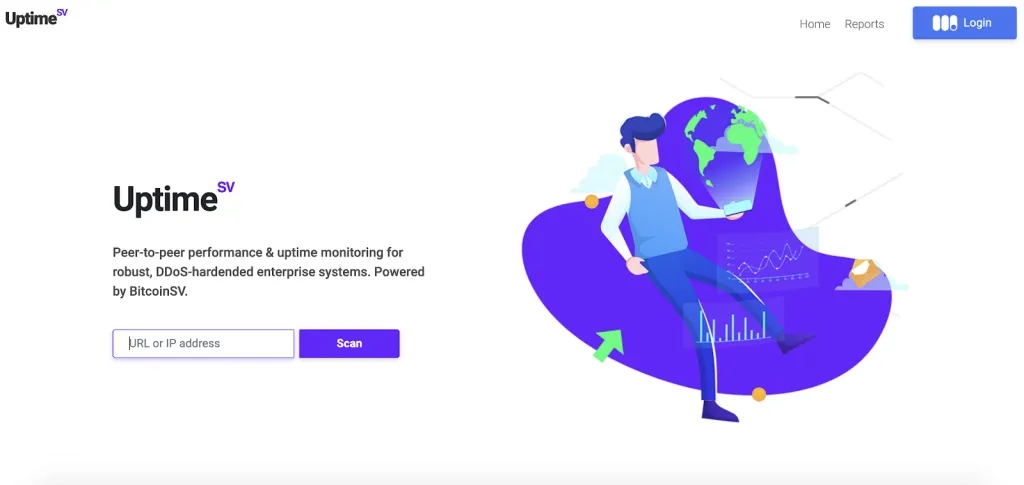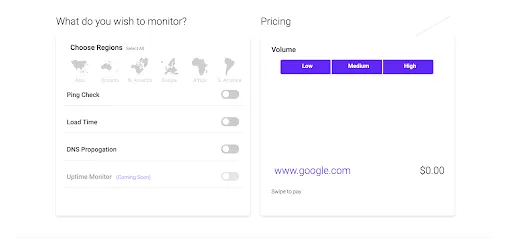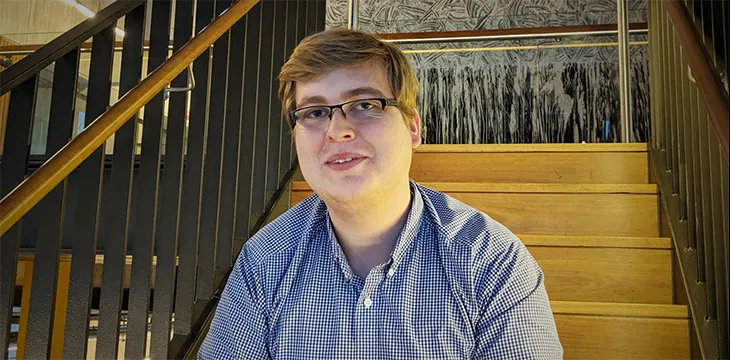|
Getting your Trinity Audio player ready...
|
The challenge given to contestants in the first CoinGeek hackathon was to create a project that would encourage more people to use Bitcoin SV for the first time—to promote ‘onboarding’ in the jargon.
The winner, announced at CoinGeek’s recent Toronto conference, is a project called UptimeSV, from a team in Australia. The idea behind Uptime is to pay people for the use of their computers and mobiles to run tests on websites and IP addresses.
The leader of the Uptime team, Brent Bevear, explained that “We wanted to give people a way of completing jobs to earn Bitcoin SV because I think that’s the most significant way that you can get a lot of people interested.” Uptime will offer the chance to earn “a little bit of money in the background” doing something useful.

The Uptime website (not yet fully functional) focuses on the other side of the business model: allowing customers to commission tests and to pay for the results. As Brent explains it, you enter the website or IP address you want information about, and then you will be offered different “mechanisms by which you could query a server to determine its uptime status, how quickly it loads, whether or not the DNS is propagated.” When you’ve picked from those options, you can choose between regions, and the number of tests you want to pay for.

One of the potential uses Brent sees is to help system administrators to diagnose denial of service attacks.
If you want to be paid by providing information for UptimeSV users, you’ll just need to download the Uptime app and set yourself up with a wallet to which your pay can be sent. You’ll then get a request from a paying customer, the requested queries will be made from your device and the data sent back to Uptime, and you’ll be sent money for your service. Depending on the level of request from the paying customer, data could be collected from as few as tens of user and as many as hundreds of thousands.
Whilst similar services may be available for subscription payments, the advantage of using BSV is that it allows micropayments—which means that individual users can be signed up to contribute for amounts that wouldn’t be possible if the commission of conventional payment services had to be included.
The good news for people who hope to make some money from Uptime is that they won’t have to think about what their device is being asked to do: “What we’ll be aiming for it to have it running in the background and completely out of your hair,” says Brent. The only downside is that it “may drain your battery a little bit.”
Brent says he was “quite shocked” when they won the Hackathon—although he admits his team-mates probably had “a little more confidence” than he did. When they heard they were in the final three and were invited to Toronto, Brent’s first thought was that he needed to get a passport, since he’d never left Australia before this trip.
What’s more, it was the first time he’d met other BSV supporters. “You couldn’t ask for a lovelier crowd,” he said, “they were fantastic people.”
Hear the full interview with Brent Bevear on this week’s CoinGeek Conversations podcast:
You can also watch the podcast video on YouTube.
Please subscribe to CoinGeek Conversations – this is episode 24 of a weekly podcast series. Just search for “CoinGeek Conversations” wherever you get your podcasts, subscribe on iTunes, listen on Spotify or visit the CoinGeek Conversations website.
https://youtu.be/gBb9FSxfyVs

 09-19-2025
09-19-2025 





